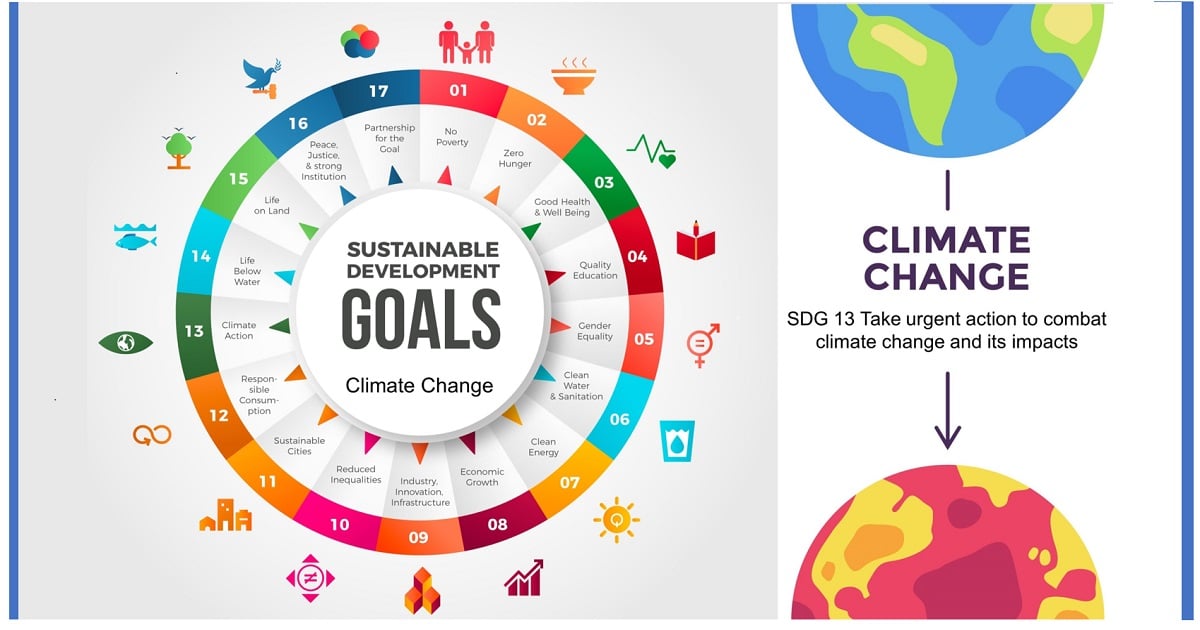Editorial Board Members’ Collection Series: Climate Change and SDGs
A special issue of Sustainability (ISSN 2071-1050). This special issue belongs to the section "Air, Climate Change and Sustainability".
Deadline for manuscript submissions: closed (30 April 2024) | Viewed by 2905

Special Issue Editors
Interests: energy economics; renewable energy; air pollution; GHG emissions; climate change; sustainable development
Special Issues, Collections and Topics in MDPI journals
Interests: biogeochemistry; climate downscaling; ecological climatology
Special Issues, Collections and Topics in MDPI journals
Special Issue Information
Dear Colleagues,
Among all SDG goals, SDG13 calls for urgent action to combat climate change and its impacts. However, as climate change presents the single biggest threat to humans, its widespread and unprecedented impacts make it extend far beyond SDG 13, and be closely connected to all other SDGs. More precisely, according to WMO, seven climate indicators (CO2 concentration, ocean acidification, GMST, OHC, sea-ice extent, glacier mass balance, and sea-level rise) pose direct risks to sustainable development (WMO-No. 1271).
More evidently, climate change is increasing the frequency and intensity of extreme events, such as heat waves, droughts, floods and tropical cyclones, aggravating water management problems, reducing agricultural production and food security, increasing health risks, damaging critical infrastructure, and interrupting the provision of basic services, such as water and sanitation, education, energy, and transport.
To hold warming below 1.5 °C and avoid the worst impacts of climate change, science demands that greenhouse gas emissions must urgently peak and achieve carbon neutral by 2050. At the same time, scientists are intensely working on various climate-related projects to combat climate risks. To collect work on this topic, we are establishing this series that aims to further raise the awareness of climate scientists and promote academic communication in this field. The work that we welcome includes, but is not limited to, climate projection, climate dynamics, climate modeling, extreme weather, climate change governance, climate adaptation and mitigation, climate economics, renewable energy, and GHG emission reduction. Interdisciplinary work on the above topics is particularly welcome.
Dr. Pallav Purohit
Prof. Dr. Xiaodong Yan
Dr. Shaohong Wu
Guest Editors
Manuscript Submission Information
Manuscripts should be submitted online at www.mdpi.com by registering and logging in to this website. Once you are registered, click here to go to the submission form. Manuscripts can be submitted until the deadline. All submissions that pass pre-check are peer-reviewed. Accepted papers will be published continuously in the journal (as soon as accepted) and will be listed together on the special issue website. Research articles, review articles as well as short communications are invited. For planned papers, a title and short abstract (about 100 words) can be sent to the Editorial Office for announcement on this website.
Submitted manuscripts should not have been published previously, nor be under consideration for publication elsewhere (except conference proceedings papers). All manuscripts are thoroughly refereed through a single-blind peer-review process. A guide for authors and other relevant information for submission of manuscripts is available on the Instructions for Authors page. Sustainability is an international peer-reviewed open access semimonthly journal published by MDPI.
Please visit the Instructions for Authors page before submitting a manuscript. The Article Processing Charge (APC) for publication in this open access journal is 2400 CHF (Swiss Francs). Submitted papers should be well formatted and use good English. Authors may use MDPI's English editing service prior to publication or during author revisions.
Keywords
- climate change
- climate projection
- climate dynamics
- climate modeling
- extreme weather
- climate change risk
- risk assessment
- natural disasters
- climate adaptation and mitigation
- climate change policy and governance
- climate economics
- renewable energy
- GHG emission
- climate-sensitive ecosystem
- air pollution
- climate-related health impacts
- SDGs







